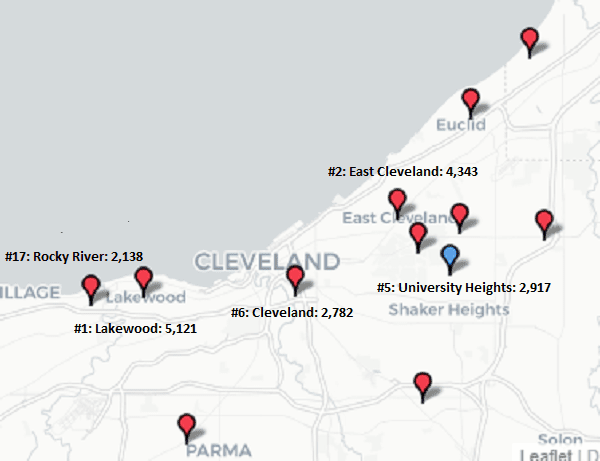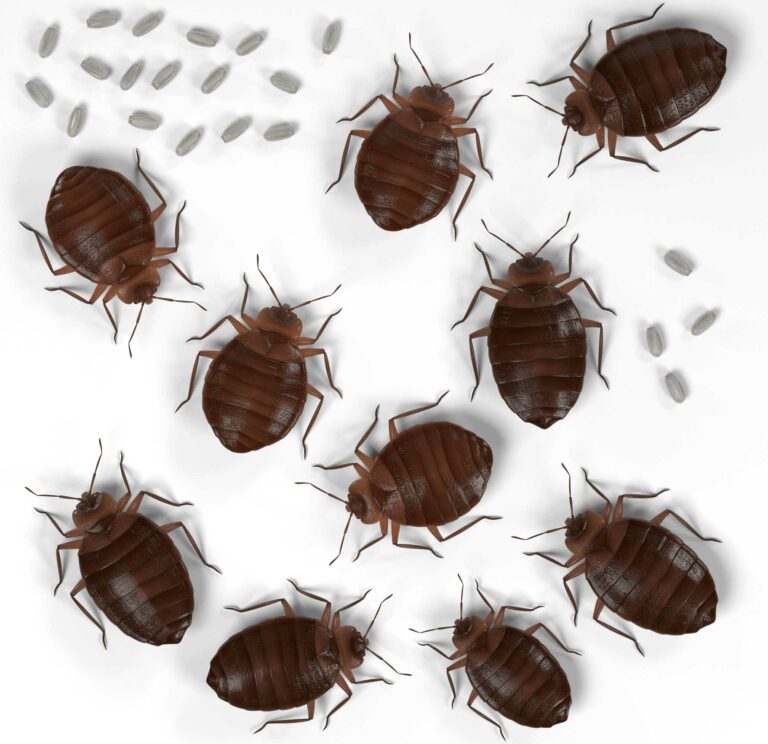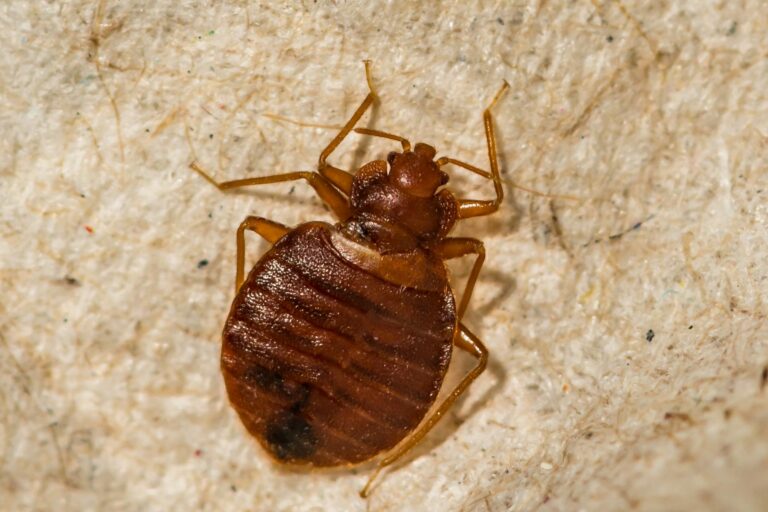Oh No! Bed Bugs in Lakewood Ohio
Due to the increasing population and housing density, Lakewood Ohio has become a hotspot for bed bug infestations. This nasty pest takes shelter in indoor locations and, without using extreme measures, are difficult to exterminate. Dating back to the 1800s, bed bugs have been an issue. In more recent times, their population has spread and have the true reputation of infesting apartment complexes, public transportation, schools, nursing homes, and your everyday single family homes in the area. Cleveland was even named #14 on Orkin’s Top 50 Bed Bug Cities.
But why do bed bugs love Lakewood?
It is important to point out, before shaming Lakewood, that anyone can get bed bugs. They show no discrimination toward their victims. Therefore, the reasons that are about to be stated are based on our expert opinion on bed bug travel patterns and are only a part of the reason that one city may be more likely than another to have a bed bug issue. If you would like to read more on why Cleveland was named #14, read Cleveland is in the Top 15 for Worst Bed Bug Infestations. Lakewood, in particular, has its own characteristics that make it more prone to bed bugs than other cities.
 Taking the number one spot for the amount of housing density in a square mile by 1000 units, Lakewood comes in at 5,121 housing units per square mile. East Cleveland takes number two, with 4,343 units per square mile [City Data]. The amount of housing units is significant when it comes to bed bug infestation trends. Traveling through walls and common areas, bed bugs are likely to infest an entire housing complex if one unit is infested. Since Lakewood has many multi-housing units, including a large number of assisted living communities, within a tight range, bed bugs can spread quickly and make anyone their victim, even if you take the right precautions. Take a look at the housing density on the surrounding Cleveland area.
Taking the number one spot for the amount of housing density in a square mile by 1000 units, Lakewood comes in at 5,121 housing units per square mile. East Cleveland takes number two, with 4,343 units per square mile [City Data]. The amount of housing units is significant when it comes to bed bug infestation trends. Traveling through walls and common areas, bed bugs are likely to infest an entire housing complex if one unit is infested. Since Lakewood has many multi-housing units, including a large number of assisted living communities, within a tight range, bed bugs can spread quickly and make anyone their victim, even if you take the right precautions. Take a look at the housing density on the surrounding Cleveland area.
Lakewood also has a public transportation line that crosses through the entire city. Home to many Cleveland commuters and college students, Lakewood/Cleveland’s public transportation line is popular and is often used to get in and out of the city. Unfortunately, bed bugs can be found on buses and other public transits due to the constant rotation of people. With a continuous circulation of occupants, public transit makes a perfect place for bed bugs to spread.
How is Lakewood solving this issue?
There have been measures taken to educate the population on how to prevent infestations, but unfortunately, the cost of bed bug removal and embarrassment often deter people from eliminating the issue quickly and safely. Often those that have a bed bug infestation use store-bought insecticides that neither eliminate nor help their problem. The bed bugs then follow them to public locations which leads to others having the same issue. This constant cycle of infestations has left Lakewood in a state of concern and have since allowed them to push forward and enact policies to prevent further bed bug infestations in the city.
Because bed bugs are often transferred from tenant to tenant and there being a high density of rent locations, in November of 2017 Lakewood City Council passed an ordinance to clarify owner and tenant responsibilities. The Property Maintenance Code 1306.34 states the Responsibility for Pest Managements. Here are a few of the regulations stated in the ordinance
- The maintenance of all occupiable structures is the sole responsibility of property owners and/or their agents.
- All occupiable structures must be maintained pest-free, and property owners are responsible for eliminating infestations.
- Tenants have a duty to report possible infestations and to cooperate by allowing reasonable access to their unit and work with the owner’s agents to follow treatment protocols.
- When a tenant reports a possible or known infestation, the landlord must notify all contiguous units in writing. That includes units on either side and above and below the affected unit. An example of a letter notifying a landlord of an infestation, can be found here.
Once the owner eliminates the bed bugs, there must a year-round maintenance schedule in place in order to ensure the infestation does not return. If an owner fails to comply with the Ordinance they can be issued a correction notice and if compliance continues to fail, it may result in criminal prosecution.
The City of Lakewood encourages up-to-date industry standards and best practices to exterminate bed bugs including pest management techniques which utilize both chemical and heat treatments.
Chemical treatments often require more than one treatment and can present harmful fumes into an environment, rather than a heat treatment is non-chemical and will eliminate bed bugs in one day. To read more on a bed bug heat treatment, visit here.
Here at Bed Bug BBQ, we use our expert knowledge on bed bugs to give you direction as to whether you are in need of a bed bug heat treatment. No sales pitches, just our expert recommendation on what your next steps (if any) should be. Lucky for you, Bed Bug BBQ offers FREE inspections so you can sleep peacefully at night knowing that you don’t (or do) have bed bugs. If you are in the Lakewood or Cleveland area and need bed bug removal, call us today to schedule your inspection: (216) 221-1227.







